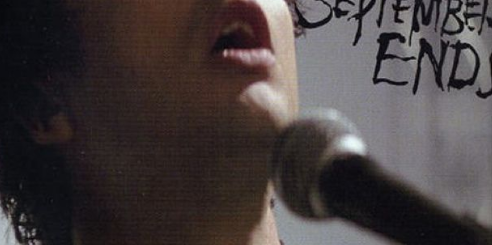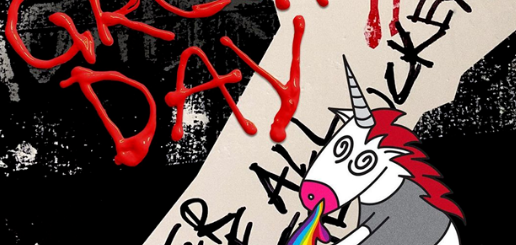Chump by Green Day Lyrics Meaning – Unraveling the Raw Emotion in Punk Rock Anthems
Lyrics
You’re the reason for my misery
Strange, how you’ve become my biggest enemy
And I’ve never even seen your face
Maybe it’s just jealousy
Mixed up with a violent mind
A circumstance that doesn’t make much sense
Or maybe I’m just dumb
You’re the cloud hanging out over my head
Hail comes crashing down welting my face
Magic man, egocentric plastic man
Yet you still got one over on me
Maybe it’s just jealousy
Mixed up with a violent mind
A circumstance that doesn’t make much sense
Or maybe I’m just dumb
I’m a chump
At the core of punk rock is the visceral, the candid, and often the intensely personal. Green Day’s ‘Chump,’ a track from their breakthrough album ‘Dookie,’ is a prime exhibit of this unfiltered emotional rawness. The mid-’90s classic reverberates with sentiments of antipathy and reflection, tying in perfectly with the band’s reputation for combining catchy hooks with the kind of emotional weight that’s often belied by the genre’s simplicity.
Scratching beneath the surface noise, we delve into the heart of ‘Chump,’ a song that might appear straightforward at a glance but is rife with complexity and anguish. While Billie Joe Armstrong’s searing lyrics fuel the narrative of perceived resentment, it’s the intricate play of these sentiments that invites a closer inspection. Let’s dismantle this track piece by piece, exploring the enigma wrapped in the guise of punk simplicity.
The Enemy You’ve Never Met – More Than Just Lyrics
One of the most salient features of ‘Chump’ is its antagonistic view towards an unseen adversary. Armstrong’s declaration, ‘I don’t know you but I think I hate you,’ is steeped in the kind of paradox that infuses much of human emotion. This sentiment echos a broader, more universal feeling of discontentment, wherein the enemy is as much an idea or unmet expectation as it is a person.
Through its intense vitriol, ‘Chump’ serves as an ode to the moments of irrational anger and confusion we direct towards the people who embody our frustrations—even if we never cross paths with them. It’s a reminder of punk rock’s ability to channel an individual’s internal battles and societal angst into a powerful, shared experience.
Jealousy, Violence, and the Adolescent Psyche
The recurring theme of ‘Maybe it’s just jealousy / Mixed up with a violent mind’ opens a window into an adolescent psyche that feels at once confounded and enraged by the state of things. ‘Chump’ delves into these emotions with unapologetic honesty, examining how these feelings manifest and contradict one another within the human spirit.
In these lines, Armstrong shoves us into the tumultuous waters of youthful insecurity and the indomitable force of jealousy that can distort both self-perception and perception of others. It’s a frank admission of emotions not often associated with booming confidence of punk rockers, revealing the duality that lies in the hearts of even the most seemingly rebellious.
A Look at the Song’s Cryptic Metaphors – The ‘Magic Man’
Lines like ‘Magic man, egocentric plastic man’ invoke cryptic metaphors, dense with meaning and scorn. To dissect this, the ‘Magic man’ can be seen as a symbol of superficial charm and manufactured persona, with Armstrong belittling figures revered in society who, in his eyes, exemplify the artificiality and the deceit of the establishment.
This stark commentary wrapped in metaphor is part of the hidden meaning of ‘Chump.’ It ultimately paints a portrait of the internal monologue of someone disillusioned and embittered by the false fronts paraded before them, a rebellion against the phoniness encountered in everyday life.
Decoding the Self-Deprecation – Or Maybe I’m Just Dumb
The repeated line, ‘Or maybe I’m just dumb,’ fires a bullet of self-deprecation that ricochets off the walls of an otherwise confrontational tone. By examining this, one uncovers the complexity of self-awareness and the humbling possibility of overreaction—a critical self-examination that adds depth to the otherwise outward-facing criticism throughout the song.
The inclusion of this line flips the script on accountability and introspection. Rather than placing blame solely on external factors or individuals, Armstrong contemplates the unnerving notion that one’s perspective might be skewed or unfounded. It’s a powerful admission that introspection can be just as punk as external defiance.
‘Chump’ and Its Resonance in Today’s Social Climate
Despite its early ’90s inception, the themes in ‘Chump’ resonate with striking relevance in today’s eclectic social landscape. The song captures the timeless nature of human emotion—a relationship with others shaped by envy, confusion, and aggression—and the enduring need to express and understand these feelings.
In an era where social media can magnify feelings of inadequacy and envy, ‘Chump’ reverberates with the modern listener just as it did with those who first scrawled Green Day’s lyrics on their school notebooks. It’s a testament to the song’s lasting legacy and the perennial appeal of punk rock’s raw and unyielding dissection of the human condition.








